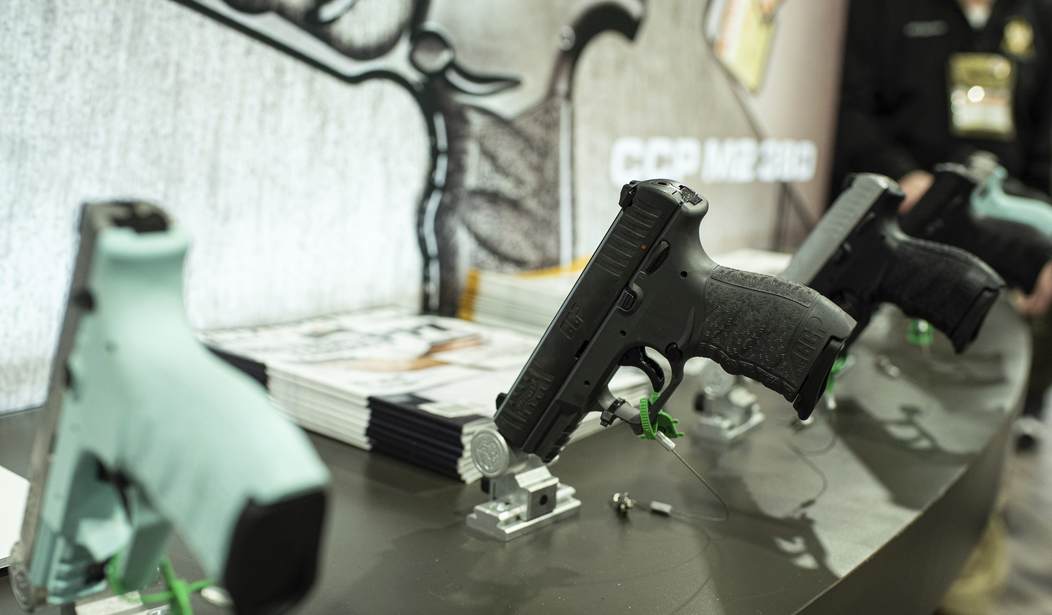I'm not a fan of "red flag" laws, for a variety of reasons. Yes, they typically lack due process protections, but they also operate under the false premise that if someone poses a threat to themselves or others taking away any legally owned guns will render them harmless. Extreme Risk Protection Orders rarely, if ever, offer any sort of mental health resources, even if a judge decides that they're too dangerous to own a gun. From both a constitutional and common sense perspective there are fundamental problems with these kinds of laws.
So what should you do if you ever find yourself the victim of a "red flag" petition? Well, let's start with don't do this:
A California resident has been convicted in federal court for a disturbing campaign of threats and harassment targeting a New Jersey judge.
On May 15, a federal jury in California’s Central District convicted 36-year-old Jonathan Lipman of stalking, a felony charge under U.S. law. The conviction follows a three-day trial that revealed a months-long barrage of violent and graphic threats Lipman directed at a New Jersey Superior Court Judge and other public officials.
According to court documents and testimony, Lipman began his campaign in early 2023 after the judge signed a Final Extreme Risk Protective Order against him, barring him from possessing firearms.
The order followed earlier threats Lipman had made on social media against New Jersey law enforcement and officials.
From February to September 2023, Lipman sent approximately 400 emails to the judge and other New Jersey officials, including police officers and court staff.
The emails were sent from multiple accounts and contained graphic fantasies of violence, including beheadings, shootings, and executions.
In one particularly chilling message, Lipman sent the judge a photo of a lever-action shotgun with the subject line, “Is a photo illegal?” and a winking emoji.
A photo of a gun didn't violate Lipman's ERPO order, but harassing a judge and threatening them not only would have been grounds to extend the order, but to charge him with a federal felony offense.
The FBI executed a search warrant at Lipman’s Los Angeles residence in September 2023, seizing digital evidence linking him to the threatening emails.
Even after the search and a direct warning from an FBI agent, Lipman continued sending emails, including one in which he wrote, “TAKE ME INTO CUSTODY OR I will make you arrest me for trespassing,” authorities said.
Lipman was arrested shortly thereafter and has remained in federal custody since.
And now, as a convicted felon facing at least five years in prison, Lipman's lost his right to keep and bear arms forever. Even if the Supreme Court concludes that the blanket prohibition on gun ownership for convicted felons is unconstitutional, the justices are likely to adopt a standard that requires a finding of "dangerousness" before someone is stripped of their Second Amendment rights, and I doubt there's a judge in the land who would say Lipman doesn't pose a danger.
The big question for me is why wasn't Lipman charged with a crime to begin with? Again, taking away his ability to legally possess a firearm clearly didn't stop him from threatening harm to others, nor would it have prevented him from carrying out an attack on the judge or other law enforcement. He could have used a car, gasoline and matches, or even an illegally acquired gun to commit those crimes. Lipman wasn't a threat because he owned a gun. He was a threat because he kept making threats.
New Jersey's "red flag" law didn't make anyone safer by preventing Lipman from legally purchasing or possessing a gun. To the contrary. It's use allowed Lipman to remain free to cyberstalk and threaten a judge for months on end. There's a compelling case to be made that Lipman shouldn't have access to his Second Amendment rights, but criminal charges or an involuntary commitment would have been much better tools to deploy than an Extreme Risk Protection Order; again from both a constitutional and common sense perspective.










Join the conversation as a VIP Member